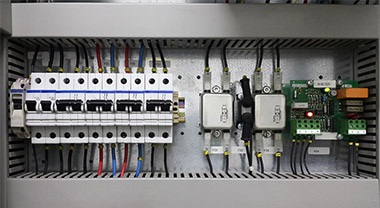What is the reason for the circuit breaker skipping trip?
What is the reason for the circuit breaker skipping trip?
- The main switching points less than the sum of the load switch.
- The main switch has no sub-switch leakage protection device, with the electrical leakage when the main switch is tripped than or equal to 30 mA.
- The regular-load operation of the main switch lead to increased resistance after shock heating current rise carbide bad trip.
- The lower end of the main switch switches only the upper insulating sub reduced or excessive current caused by insulation formed carbonization soft-short.
- The main switch tripping current is smaller than the switch current annotation. Shunt trip time after the above exclusion, certainly greater than the design partial switch shunt trip time. General DZ series of air switch shunt trip time t <0.1s, that is to say the original shunt switch prolonged use, design sharing mode has been changed, to replace a shunt trip time is less than one on the switch points switch.
Tripping leapfrog supplementary analysis correct:
households a switch in the type of protection, both thermal overload protection on switching off Fault leapfrog generally fall short circuit fault, since. That is, when households in large electricity (about 1.12 times the rated load design) and the time exceeds a certain limit (about 15 minutes) splitting the main switch element is deformed due to overheating Tripping operation of the thermal protection. And there are two floors to the breaker protection; First thermal protection (overload) Second instantaneous trip protection (short circuit). When there is a short circuit in households, household switch does Tripping i.e. floor master switch will short-circuit protection Tripping operation. Because the short-circuit current is much larger than the current overheated, it will cause leapfrog out gates.




